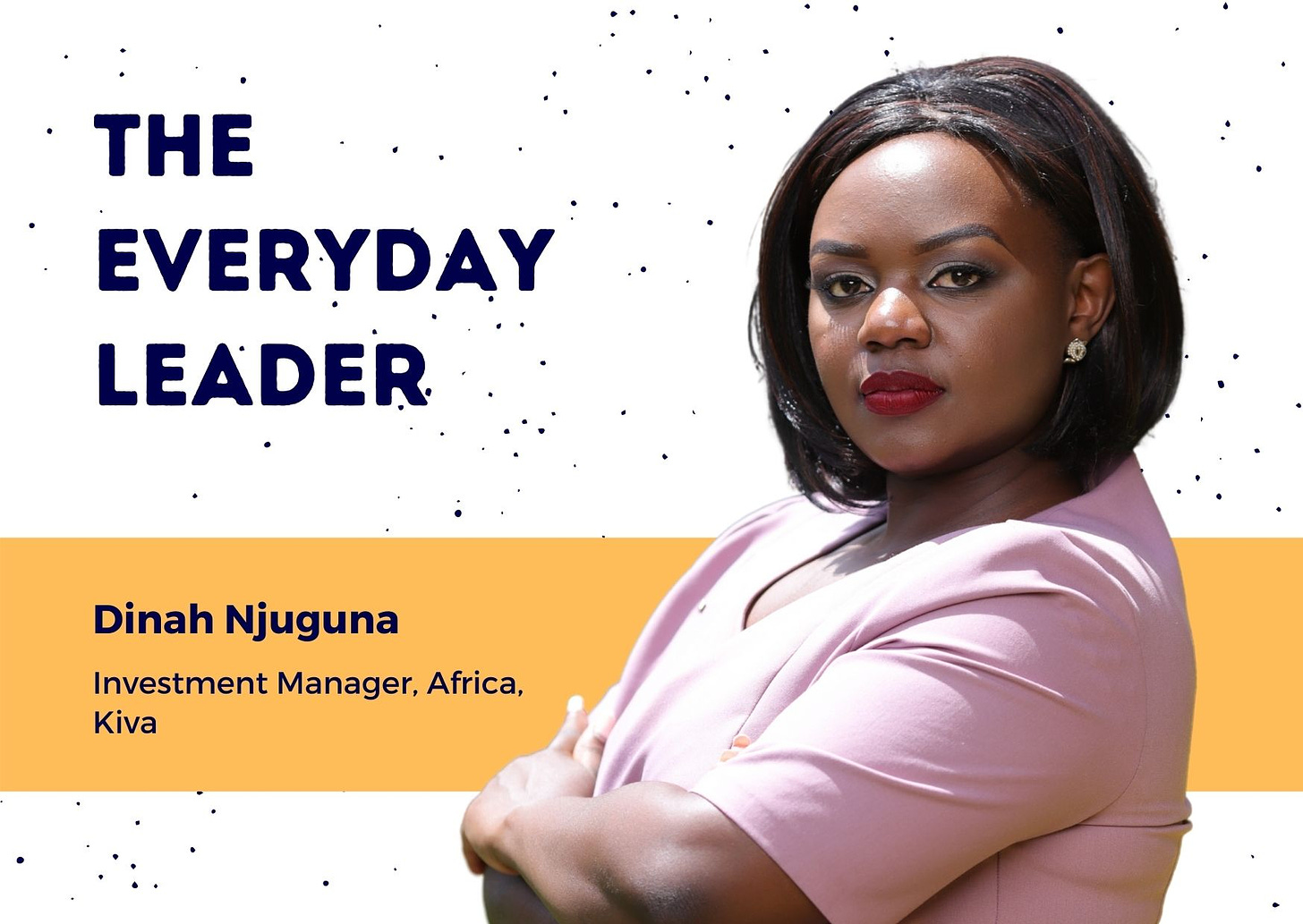Hi everyone, here’s what we have for you this week:
Are you giving your team enough space to make mistakes? In this week’s episode of The Everyday Leader, Dinah Njuguna from Kenya shares how early managers let experience important lessons firsthand.
Side hustles are more popular than ever. We share 3 tips from managers at companies in Africa on how to balance and leverage multiple leadership roles.
The GROW Model can be used in everyday management. Read our case study on how a Head of Customer Experience in Kenya uses the GROW coaching framework to approach problem-solving on his team after participating in peer coaching network.
Read on for more details…
Creating space for making mistakes, the importance of establishing your credibility, and being more mindful of time management during remote work
Here are a few highlights from the conversation with Dinah:
Good managers create space for their teams to learn from their mistakes firsthand: We’ve all experienced cases where a family member or manager has given us guidance about avoiding a certain decision or strategy, yet we go ahead anyway only to realize that the guidance would have helped avoid a challenge. In an early leadership role, Dinah did the same several times, ignoring advice from her CEO. Looking back, she appreciated that the CEO was flexible in allowing her to make certain relatively low-risk mistakes firsthand, since this makes it easier to walk away having learned important lessons.
Clearly communicate how your experience, skills and network are valuable: Whether you’re starting to manage, coach or mentor someone, it’s crucial to articulate what you are bringing to the table. This will earn you credibility and provide a reason why they should respect you and listen to what you have to say. When Dinah works with founders, she makes sure to acknowledge that she hasn’t started a company herself, but has worked with other founders and has valuable experience and networks on the capital side of things. This will help when someone makes a snap judgement of whether or how to follow someone’s advice.
Remote work has required more mindful time management and collaboration: Prior to remote work, Dinah often found herself effective at mobilizing team members around shared goals by rallying them around projects as needed, and she was often forgoing lunch breaks and the last to the leave the office. Now, as she’s adjusted to remote work, has learned to take breaks and plan more carefully to collaborate with colleagues in advance and asynchronously.
Managing Multiple Leadership Roles
Side hustles are more popular than ever. The ability to work remotely combined with ever-ambitious leaders wishing to learn and grow faster, teams are often led by entrepreneurs and managers who are juggling several businesses or projects simultaneously. From one perspective, there exists a risk that these leaders can overstretch themselves to the detriment of their core responsibilities. On the other hand, the opportunity arises to accelerate learnings to the benefit of their teams. We heard from several leaders on how they are coping and embracing their choice to take on multiple endeavors. Here are three tips they shared:
The best side gigs are win-win for both staff and employers: As an HR practitioner, Temi Samson-Grace, the Head of Talent at Big Cabal Media, rightfully insists that a side gig should not interfere with someone remaining fully productive in their core role. In our interview with her, she also highlighted that side gigs can even bring value to one’s primary role, in cases such as developing yourself as a leader and achieving personal goals. In her own case, she also works as a coach outside of her work with Big Cabal Media. In both her conversations with team members and with her personal clients outside of work, her goal is usually the same - to help individuals find clarity. She has found both roles very complementary.
Managing multiple businesses or teams simultaneously can help provide perspective and parallel learning: Matthew Henshall currently manages two businesses concurrently as Founder and CEO of Lessonspace and Code4Kids. In our interview with him, he shared how this has accelerated his rate of learning. He says this has allowed him to spot similarities and differences in each business. It gives him an opportunity to think more about why certain business and team strategies might work with one and not the other, and he has even found himself connecting peers across both companies to exchange specific learnings he feels would be relevant to each other. This dual-business set up has also forced him to shift his leadership style from doing everything for his teams to more of an enabling role. He used to tell people his role was to “make sure you know where you’re going, have what you need to get there, and I’ll help you get there” to instead only promising the first two.
Be disciplined in managing your time commitments and focus on where you can add the most value: When balancing multiple roles, you can’t afford to not be efficient with your time. In our interview with Joseph Rutakangwa, the Founder and CEO of Rwazi, he described how he allocated only a few hours every Saturday to advising a small number of other startup founders. In allocating his time and resources to this extra pursuit, he says he is forgoing other personal leisure time and activities. As such, he has been highly selective in whom he takes on as mentees and invests in. If a startup sector or business model does not present an obvious way for him to add value through his existing experience and network, or if the founder does not demonstrate relentless focus, he won’t continue to work with them. This advisory role has also helped him come across strategies that he can bring to his own team and business.
Head of Customer Experience in Kenya uses the GROW coaching framework to approach problem-solving on his team after participating in peer coaching network
Collins Lumumba serves as the Head of Customer Experience at the Metropolitan National Sacco, a financial institution in Nairobi, Kenya. Over the past 11 years, he has held a series of management roles. He first started as a Branch Manager before earning a promotion to Business Development Manager, and then again grew into his current role. Throughout his leadership journey, Collins has continually sought out professional development support. This growth mindset led to him applying and joining the CoffeeChat Peer Coaching Network in 2022.
As part of joining the CoffeeChat Peer Coaching Network, Collins completed the Peer Coaching Essentials course which includes a focus on the GROW Model. This coaching framework helps keep two-way conversations structured and outcome-orientated. After being paired with several managers from other companies and practicing this technique, he has found himself also using it with his own team and sharing with them on how they too can approach problems with this outline.





